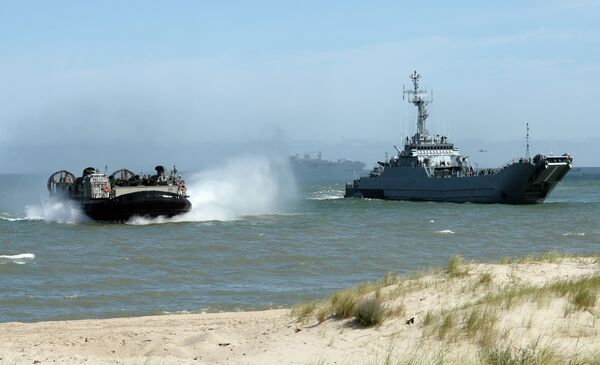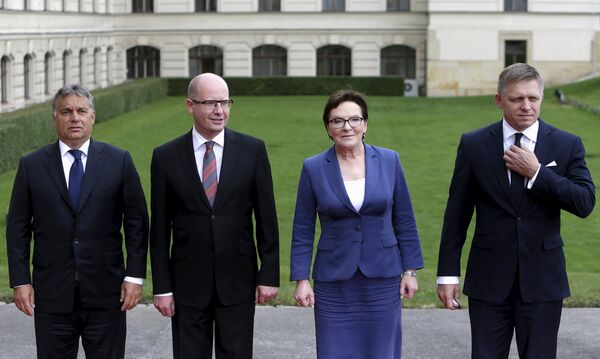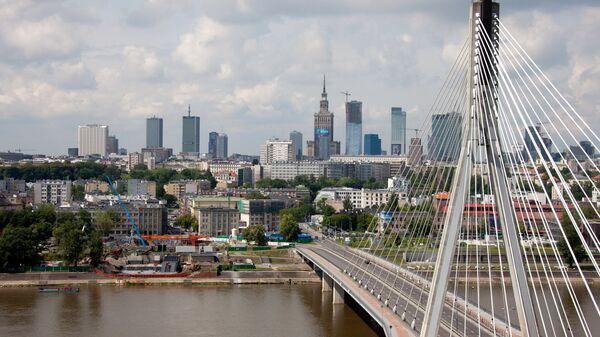Poland views Hungary, Romania, Lithuania and Slovakia as its key partners but, ironically, "the common interests that bind Warsaw with one potential ally distance it from another," the Texas-based think tank noted.
At the same time, Hungary wants to promote ties with Moscow, while Lithuania shares Poland's belief that Russia poses a threat to the region, although Russian politicians, officials and experts have repeatedly stated that this is a baseless accusation.
The Law and Justice party has been a staunch supporter of keeping sanctions imposed on Moscow intact and inviting more NATO troops to Eastern Europe.

"Hungary, on the contrary, wants a more balanced approach that would include de-escalating tensions with Russia and lifting sanctions to normalize ties and protect Russian investment and energy supplies to Hungary," the think tank detailed.
The EU refugee relocation policy is another issue that Warsaw and Budapest see eye to eye on. Both countries will make every effort to prevent quotas for asylum seekers from being introduced. Romania and Slovakia are also on the same page on this issue.
Last week, Hungary's Prime Minister Viktor Orban, whom Politico recently placed at the top of its list of leaders "shaping, shaking and stirring" Europe, urged the EU to build a "line of defense" against refugees in northern Greece and pull the plug on immigration to the EU.
"Not only are we refusing mandatory quotas, we will never make a voluntary decision that would lead to formation of a united Muslim community in Slovakia," Slovak Prime Minister Robert Fico echoed a day later.
As a result, Poland's cooperation with Central and Eastern European nations will most likely be carried out on a case-by-case basis, while the region will remain "too heterogeneous to form a cohesive bloc."

Even the Visegrad Group, an alliance comprising the Czech Republic, Hungary, Poland and Slovakia, is seen as a loose organization structure. It was created to promote further integration in Central Europe, but an unnamed Slovak diplomat described the V4, as it is sometimes styled, as "overblown."





